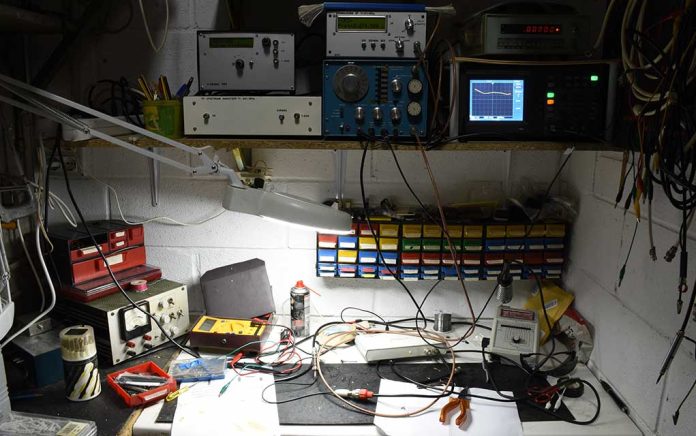(SurvivalDaily.com) – Cell phone service might be invaluable, but it can’t be relied on in an emergency. A power outage in the wrong place can disable the signal over a wide area — and storms can damage cell towers. We have to consider that in a crisis, so many people may be trying to use the network that it exceeds capacity and calls stop going through.
A “worst-case” EMP attack could take down the whole network and disrupt phones, too. Obviously, your phone doesn’t just let you keep in touch with loved ones; it can give you news updates, traffic information and weather alerts, and of course, it can also be used to contact emergency services. But yeah — in a major emergency, cell phone service is probably the first utility that’s going to fail. So what then?
Emergency Communications and Workarounds
The first thing to do is to make sure you have some way to communicate from home even if the cell networks go down. Do you still have a landline? You should. Beware though, a lot of modern phones are based on VOIP, which stands for Voice Over Internet Protocol, and if the internet goes down, they will too.
So know what your landline is, and choose accordingly. And think old-school here. You can’t rely on cordless phones because they need power. You don’t need to keep it out on the counter, you can keep it in a closet until you need to plug that oldie in and use it to call 911.
Think Beyond a Phone
Did you get that Ham (amateur radio) training I’ve been thinking about? If you have that and a Ham radio, then you’re good to go. Whenever there’s a natural disaster, Ham networks come to life with information so you’ll be in the loop — in fact, hammers are often a vital link between first responders and the people they need to help.
Have a Plan to Get Home or Reconvene
Of course, you might not be home when disaster strikes. That’s when you need to be able to operate with no communications at all — and you need to trust that everyone knows what to do. So make sure you have a plan to get home from regularly visited places, and that everyone in your family has one, too.
Your kids might be used to staying in touch by phone, but when that’s not an option they need to know what steps to take. Consider sticking a laminated card with directions for various scenarios into their backpacks so they have something to reference to ward off panic. Other ideas include a place close to town where people might gather or where messages can be left for one another to help you come back together.
The truth is, we don’t need today’s popular communication methods. They’re great to have, but anyone older than twenty can remember when nobody had a cell phone at all. Doing without one is an inconvenience, but one we can overcome with a little planning and preparation.
What about you? Do you have a plan to handle a communication blackout? Reply to your email and let us know.
Copyright 2021, SurvivalDaily.com

















